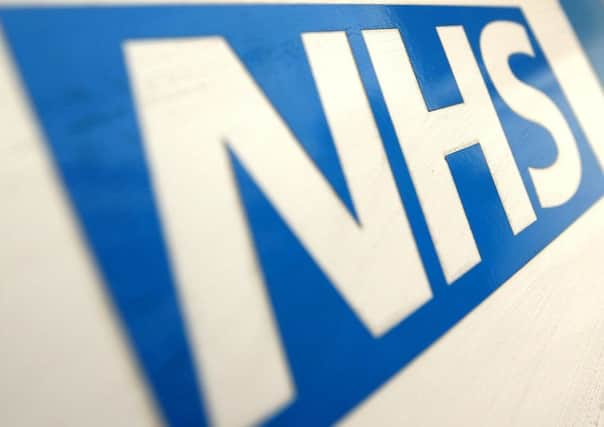NHS bosses accused over “outrageous” pay hikes


Union chiefs have reacted furiously to the awards for senior directors at Hull and East Yorkshire Hospitals NHS Trust and the Yorkshire Ambulance Service in contrast to pay rises for other staff who have seen a succession of freezes or increases limited to one per cent since 2011.
The Yorkshire Post can reveal controversial chief executive Phil Morley, who quit his post in Hull in the spring after a report raised concerns over staff shortages and highlighted claims of bullying, was handed an extra £10,000 in basic pay in 2013-14, taking his salary to £195,000-£200,000.
Advertisement
Hide AdAdvertisement
Hide AdAt the ambulance service, which has been hit by a long-running row over downgrading of some staff, chief executive David Whiting saw his salary rise nearly 10 per cent to £141,000.
Growing anger over pay among NHS workers will trigger a wave of strike action later this month following Health Secretary Jeremy Hunt’s rejection of a recommended one per cent pay rise. Yesterday radiographers became the latest group to join walk-outs which will also include members of the Royal College of Midwives for the first time in their 133-year history.
Last night Ray Gray, regional organiser for Unison, said staff would be furious over the increases.
“There is no excuse. They will say they are working harder but so is everybody else in the NHS. They should do a shift in the back of an ambulance or on a ward for a while to see what hard work is.
Advertisement
Hide AdAdvertisement
Hide Ad“Staff are told we’re all in it together but not when management is taking these kind of pay increases.”
Terry Cunliffe, regional officer at Unite, branded the rises “outrageous”.
“It’s disgraceful they are taking fat-cat pay rises whilst the rest of staff have their pay frozen or even face cuts in pay and pensions.”
The £10,000 additional basic pay for Mr Morley, which was also handed to two other board executives, came after he had received a £10,000 pay hike the year before. He came under fire this summer after details emerged of NHS corporate credit card spending in his name including stays at several luxury hotels and meals at top restaurants.
Advertisement
Hide AdAdvertisement
Hide AdHe left the Hull trust in April for “personal reasons”. It came as a report by the Care Quality Commission criticised staffing levels on wards and in A&E and pointed to a culture of bullying which has triggered a major investigation. He picked up his pay rise in the year he attracted international headlines after appearing dancing along a corridor dressed as Superman to the sound of Tony Christie’s hit Is this the way to Amarillo? in a corporate video. He has since been appointed chief executive at a NHS trust in Essex.
A spokeswoman for Hull and East Yorkshire Hospitals NHS Trust said: “When considering salaries, the trust’s remuneration committee routinely uses external benchmarking information to provide comparative data to inform its decisions. Between 2012-13 and 2013-14, a number of executives were appointed to new roles or took on additional duties or responsibilities which attracted additional remuneration.”
She said personal contributions to salary sacrifice schemes could be reflected in headline changes to salary.
Other increases at the ambulance service saw the salary of finance and performance director Rod Barnes rise from £95-100,000 to £115-120,000, while director of standards and compliance Steve Page saw his go up from £85-90,000 to £110-115,000, an increase of at least 28 per cent.
Advertisement
Hide AdAdvertisement
Hide AdThe service also employed private consultants at premium rates on its board. Interim director of workforce and strategy, Nick Cooke, earned £55-60,000 for three months’ work last summer, while Michael Fox-Davies, interim director of operations, picked up £115-120,000 between July and December - equivalent to as much as £288,000 over a full year.
Figures show half of ambulance service staff earned less than £21,400 last year.
Yorkshire Ambulance Service said executive salaries were reviewed due to higher than average turnover and difficulties recruiting to vacant posts. An independent advisor said previous salaries were at the “bottom end” of salary ranges.
“Following the review they have been aligned more closely to those of similar posts but remain at the lower end of the scale of NHS director salaries,” said a spokeswoman.
Advertisement
Hide AdAdvertisement
Hide AdSome executives had taken on increased responsibilities, while vacant posts had been filled on a short-term basis by external interim appointments.
Ambulance chiefs have been embroiled in a bitter dispute with staff at Unite which has led to a series of strikes.
The Yorkshire Post has already revealed how bosses at the Northern Lincolnshire and Goole NHS trust received double-digit salary hikes in 2013-14 in the same year as it was plunged into special measures amid concerns over higher-than-expected death rates.
The battle for votes over the NHS intensifies today as the Liberal Democrats unveil a commitment to providing an extra £1 billion of real-term funding in 2016-17 and 2017-18. It will be funded by measures to limit tax relief on pension pots for high earners, and adjustments to dividend tax.
Advertisement
Hide AdAdvertisement
Hide AdChief Secretary to the Treasury Danny Alexander said: “Our National Health Service is the jewel in our country’s crown. We will raise this extra money from asking the better off to contribute a little more in tax. A large part of this £1bn will fund the transformation in service delivery that the NHS needs for it to continue to deliver the best care to patients.